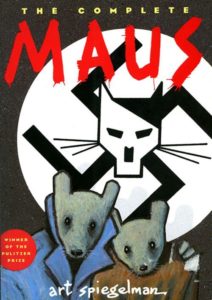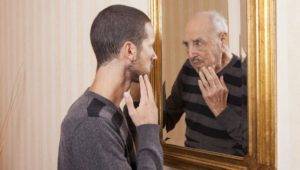Helping the Ukrainian refugees
We are compelled to help.
Do not stand idly by while your neighbor’s blood is being shed- Lev 19:16
There is something we can do; Contribute to the organizations on the ground aiding the victims of war. Choose from among many humanitarian groups trying to ease the suffering. Consider a donation to Doctors without Borders; HIAS, JDC, World Central Kitchen. Everything helps, no amount is too small. Thank you.
 With Maus, the McMinn County Tennessee school board has highlighted issues beyond Anti-Semitism.
With Maus, the McMinn County Tennessee school board has highlighted issues beyond Anti-Semitism.
With the extraordinary rise in documented Anti-semitism, we rightly are sensitive to it. However, if we merely write off the TN School board as Anti-Semites, we miss some crucial things worthy of discussion. We must ask a fundamental question: Is this a matter of teaching about the Holocaust, or is this the right book to do so? Let us set aside the charge of anti-semitism and consider other reasons why Maus would be banned.
Let me give two examples from my own Jewish experience to help frame the matter:
I have regularly seen people ushering children from the sanctuary before the Yizkor liturgy in our services. And often, well-intended adults keep their children from funerals and unveilings.
The rationale common to these is that the adults thought it best for the welfare of the children to shield them from issues surrounding death. They deemed such experiences as emotionally unhealthy. Perhaps the people of Tennessee thought similarly.
Maus is an explicit graphic novel. The author, Art Spiegelman, does not hold back from exposing the horrors of the Holocaust. The scenes are brutal and sear themselves into the mind’s eye. Once seen, it is impossible to un-see it. Arguably, that was part of Maus’ intended purpose. Maus has been a challenging and controversial book on almost every level. Bringing it to children should be careful, deliberate, and age-appropriate.
Parents try to shield their children, to protect them from the world’s harshness. The question for us to consider is whether such an approach serves a purpose?
Arguably, exposing our children to the world’s harsh realities is essential in helping them develop their understanding of the world in which we are preparing them to live.
We must also consider children’s developmental issues. We know that both the way we present materials to children and their capacity to absorb the lessons are critical components. Balancing these two is delicate, but ignoring them risks doing more harm to the psyche than good.
I understand the desire to protect children, particularly from the gruesomeness of evil. And the Holocaust is unspeakably, unimaginably evil. But if we pretend the horror did not happen, or if we sanitize it, erasing the brutality, we have likely made the case against evil no more compelling than the choice of school lunch.
We need to be vigilant in the fight against anti-semitism, and it would not be surprising to learn that anti-semitism motivated some people in the discussion surrounding Maus. But even with that, we cannot turn away from the critical conversation about what we teach our children, not as facts, but as values and how we do it without inflicting harm or destroying the humanity we are trying to nurture.
 A small gathering of family said goodbye to the matriarch this past Sunday. Adult children and wives, adult grandchildren, and a “bun in the oven.” I was asked to officiate because that is what the family believed mom would have wanted. They and their mother understood themselves in a humanist way, but they believed it was the appropriate honor for mom- to bury her Jewishly. The boys never had a chance to have this conversation with her as she had dementia that ravaged her by the end.
A small gathering of family said goodbye to the matriarch this past Sunday. Adult children and wives, adult grandchildren, and a “bun in the oven.” I was asked to officiate because that is what the family believed mom would have wanted. They and their mother understood themselves in a humanist way, but they believed it was the appropriate honor for mom- to bury her Jewishly. The boys never had a chance to have this conversation with her as she had dementia that ravaged her by the end.
I did my best to honor her and those who were trying to honor their mother by weaving rituals with stories that each family member was eager to share and reluctant to stop. This beautiful family time ended by raising a glass of chocolate milk, mom’s favorite drink, toasting her life and the family that is her legacy.
As I was preparing to leave, the sons presented me with the replica Torah Scrolls given to each of them by the rabbi from their Bar Mitzvah. They found them among the few possessions mom brought with her to the care facility.
May her life be for a blessing.
Inspiration and ideals in familiar music, as befitting the inauguration of our 46th president. A prayer in a song for our country
I live between the Holy and Profane
a moving song that describes the space we find ourselves A song that helps us understand the need for the sacred protective space that is Shabbat.
Shabbat Shalom.
(The English lyrics are below the song. )
The courage of our young people is a source of hope. Gen Z, which includes many professional athletes, are stepping up to fight against injustice.
By the Rivers of Babylon sung by Rocky Dawuni – Playing for Change
This Shabbat, May the words of my mouth and the meditations of my heart be acceptable to You.
Shabbat Shalom
 Like so many, I am frustrated. In large measure, I am frustrated with myself. It is me who needs the work. Privilege, whiteness, racist and similar words or phrases can be jingoistic, masquerading in a cloak of empathy. They really have no weight until I confront who I am with honesty and vulnerability. I have struggled with what I can only describe as our own hypocrisy; far too often we preach and we teach, but we do not fully live the Jewish values we espouse. How could this not be at the forefront of everything I do for as long as I have been doing it? What took me so long, why now? I think back at those interesting words at the beginning of Exodus: And God heard their cry and remembered the Covenant God made. What took God so long? There were 400 years of suffering and oppression. What took God so long?
Like so many, I am frustrated. In large measure, I am frustrated with myself. It is me who needs the work. Privilege, whiteness, racist and similar words or phrases can be jingoistic, masquerading in a cloak of empathy. They really have no weight until I confront who I am with honesty and vulnerability. I have struggled with what I can only describe as our own hypocrisy; far too often we preach and we teach, but we do not fully live the Jewish values we espouse. How could this not be at the forefront of everything I do for as long as I have been doing it? What took me so long, why now? I think back at those interesting words at the beginning of Exodus: And God heard their cry and remembered the Covenant God made. What took God so long? There were 400 years of suffering and oppression. What took God so long?
It does not assuage my guilt to take solace in the human time it took God. Despite knowing I cannot change the past, I struggle with how I affect the future. This only adds to the frustration of knowing I have not done enough to bring us farther along. And do I really believe in what I proclaim?
Do I have the fortitude and courage to look deep within and grapple with who I am and what I must do to change? Only then will I be whole enough to join in the battle that our society and humanity as a whole must wage to create the world I profess to believe in. Will I cross over or find contentment on this side in my narrow but for the most part comfortable space.
We have had opportunities before. We have moved forward, slowly, haltingly, stumbling often one step forward and two steps back. In actuality, we have lived with the opportunities to make change continuously. What makes this moment different? Will I be like Nachshon, wading deliberately into the unknown Sea of Reeds or be one of those longing for the land of Goshen, that narrow harsh place, whose evils are known but tempered by our thoughts of powerlessness?
Prescriptions are being bandied about. Some might be curative and others little more than a bandage. Everywhere there are now lists of things proposing changes ostensibly serving to right society’s wrongs. How could these lists be created so quickly? Seeing these in the immediate aftermath of George Floyd’s murder makes me wonder if the answers been known all along. This would imply either the problem is not that complicated or we did not have the strength to enact these prescriptions. We need to ask ourselves which it is. Or is the problem so deep and thorny as to render it all but impossible to unravel? And we have left the status quo because we are overwhelmed at the enormity of the issue. At this moment in time are we willing to find out? Will this time different from all of the other times? Am I up to the challenge?